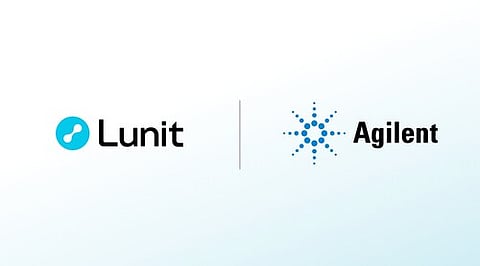

Lunit , a leading innovator in AI-driven cancer diagnostics and therapeutics, has announced a nonexclusive collaboration with Agilent Technologies Inc. , a global leader in life sciences, diagnostics, and applied chemical markets. The partnership aims to co-develop AI-powered companion diagnostic (CDx) solutions, combining Lunit’s advanced AI algorithms with Agilent’s expertise in tissue-based diagnostics to address the growing demand for complex biomarker assays in drug development.
Under the agreement, both companies will work on creating next-generation CDx tools that enhance diagnostic accuracy and measure therapeutic efficacy more effectively. The initial projects will focus on integrating Lunit’s AI technology with Agilent’s high-quality assays to evaluate critical biomarkers essential for the development of novel pharmaceutical therapies.
The joint solutions are expected to aid pharmaceutical companies in companion diagnostic product development, strengthening biomarker testing precision and supporting more personalized treatment strategies for patients.
“Biomarker testing is at the heart of precision oncology, but today it is still largely dependent on manual interpretation,” said Brandon Suh, CEO of Lunit. “By combining Agilent's global leadership in tissue-based diagnostics with Lunit's proven AI algorithms, we can help pharma partners bring biomarker-driven therapies to market faster and with greater confidence – ultimately ensuring patients receive the right treatment at the right time.”
Echoing this sentiment, Nina Green, vice-president and general manager of Agilent's Clinical Diagnostics Division, said: “Agilent is committed to bringing cutting-edge diagnostic solutions to our pharmaceutical partners and ultimately to patients, and this collaboration with Lunit further strengthens our ability to offer the most advanced companion diagnostic solutions available today. Through this collaboration with Lunit, we aim to deliver next-generation diagnostic tools that enable the advancement of precision medicine worldwide.”
Initially, the collaboration will focus on AI-powered assay co-development for research and clinical trials, representing a significant milestone for both companies as they work to redefine the role of AI in precision oncology and translational medicine.